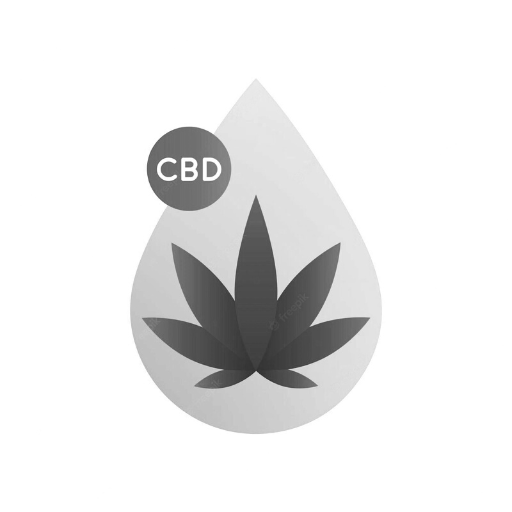
CBD Oil and Hormonal Balance: Can It Support Women’s Health?

Introduction
Hormones are at the core of a woman’s overall well-being. From mood and metabolism to reproductive health and energy levels, these chemical messengers play a vital role in regulating nearly every function of the body. But when hormones fall out of balance—whether due to stress, lifestyle, aging, or underlying conditions—it can trigger a ripple effect that impacts both physical and emotional health. In recent years, many women have turned to natural solutions for support, and CBD oil has gained attention for its potential role in promoting hormonal balance. But can CBD oil truly support women’s health in this way? Let’s take a closer look.
Understanding Hormonal Balance in Women

Hormones are produced by glands in the endocrine system and act as messengers that tell different organs what to do. Estrogen, progesterone, testosterone, cortisol, and insulin are just a few of the hormones that play significant roles in a woman’s health. Even small fluctuations can affect mood, weight, skin, fertility, and energy levels.
Imbalances may arise due to:
- Stress and high cortisol levels
- Menstrual cycle irregularities
- Polycystic ovary syndrome (PCOS)
- Perimenopause and menopause
- Thyroid dysfunction
- Poor sleep and diet
For many women, managing these imbalances often requires lifestyle changes, medical treatment, or natural support—and this is where CBD oil enters the conversation.
What Is CBD Oil?
Cannabidiol (CBD) is one of over a hundred active compounds found in the cannabis plant. Unlike THC, it does not produce a psychoactive “high.” Instead, CBD interacts with the body’s endocannabinoid system (ECS), which helps regulate mood, sleep, stress response, and—interestingly—hormone production.
CBD oil is made by extracting cannabidiol from the hemp plant and mixing it with a carrier oil such as MCT or hemp seed oil. Today, many people use it as a wellness supplement to support balance in mind and body.
The Connection Between CBD and Hormonal Health
The endocannabinoid system (ECS) interacts closely with the endocrine system. Research suggests that CBD may influence the release and regulation of hormones by interacting with receptors in the brain and body. While studies are still emerging, some promising areas include:
1. CBD and Cortisol (The Stress Hormone)
Chronic stress keeps cortisol levels elevated, which can disrupt other hormones like estrogen and progesterone. Early research suggests CBD may help regulate cortisol production, potentially reducing stress and its hormonal effects.
2. CBD and Insulin Regulation
Insulin imbalance can contribute to weight gain, diabetes, and PCOS. Some studies indicate CBD might help improve insulin sensitivity and support metabolic health, though more research is needed.
3. CBD and Menstrual Cycle Support
Hormonal fluctuations during the menstrual cycle can cause cramps, mood swings, and irritability. Many women use CBD oil for relaxation, pain relief, and improved mood during menstruation.
4. CBD and Menopause
During menopause, estrogen levels drop, often leading to hot flashes, mood swings, sleep disturbances, and bone loss. CBD’s calming properties and its potential to support sleep and bone health may provide relief.
5. CBD and Thyroid Function
Though research is still limited, the ECS is thought to play a role in thyroid regulation. Some early evidence suggests CBD may influence thyroid hormone balance, but clinical studies are necessary to confirm.
Potential Benefits of CBD Oil for Women
While CBD isn’t a cure-all, its interaction with the ECS may support overall well-being in several ways:
- Stress and Anxiety Relief – Helps calm the nervous system and balance stress hormones.
- Better Sleep – Supports restful sleep, which is essential for hormonal repair and regulation.
- Reduced Inflammation and Pain – Useful for menstrual cramps, endometriosis, and joint pain.
- Mood Support – May help balance neurotransmitters like serotonin, promoting emotional stability.
- Bone and Heart Health – Some research suggests CBD may support bone density and cardiovascular wellness, which are key concerns post-menopause.
How to Use CBD Oil for Hormonal Support
If you’re considering CBD oil for hormonal balance, here are some tips to get started:
- Start Small – Begin with a low dose (5–10 mg per day) and adjust gradually.
- Choose Full-Spectrum or Broad-Spectrum – These types of CBD oils contain additional cannabinoids and terpenes that may enhance benefits through the “entourage effect.”
- Consistency Matters – Take CBD regularly for best results, rather than sporadically.
- Monitor Your Body – Keep track of how your mood, energy, and symptoms change over time.
- Consult a Doctor – Especially if you’re on hormone therapy, birth control, or other medications.
Are There Any Risks?
CBD is widely regarded as safe for most people, but like any supplement, it is not completely free of risks. One of the main concerns is its potential interaction with certain medications. For example, CBD can influence how the body metabolizes drugs such as blood thinners, thyroid medications, or antidepressants by affecting liver enzymes responsible for breaking them down. This could either increase or decrease the potency of the medication, leading to unintended side effects. That’s why consulting a healthcare professional before starting CBD is crucial, especially if you are already on prescription drugs.
When it comes to side effects, they are typically mild and manageable. Some users report drowsiness, which may be helpful for sleep but inconvenient during the day. Others experience digestive issues like nausea, diarrhea, or changes in appetite. Dry mouth is another commonly mentioned effect, caused by CBD’s interaction with saliva production. These reactions vary depending on dosage, individual sensitivity, and product quality.
To minimize risks, it’s important to choose high-quality CBD oil from a reputable brand. Look for companies that provide third-party lab testing, which verifies that the product is free from contaminants like pesticides, heavy metals, and solvents, while also confirming accurate cannabinoid content. This step ensures both safety and effectiveness, giving you confidence that what you’re taking truly supports your health.
Also Read: CBD Oil and Brain Health: Can It Support Memory and Focus?
Final Thoughts
CBD oil shows promise as a natural ally in supporting hormonal balance and women’s health. While research is still in its early stages, many women report improvements in stress management, sleep, mood, and menstrual comfort with regular use. However, it’s important to view CBD as part of a broader lifestyle approach—balanced nutrition, exercise, stress management, and medical guidance remain crucial.
As science continues to explore the fascinating link between CBD and the endocrine system, CBD oil may well become a valuable tool for women looking to reclaim balance and vitality in their lives.